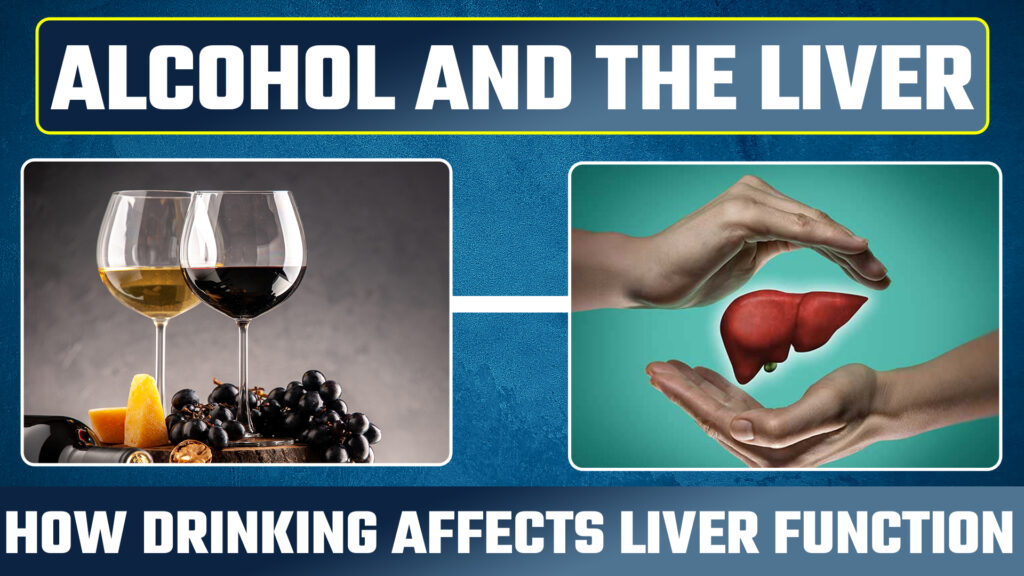Understanding the connection between alcohol and liver
Approximately 5% of the total world population is affected by alcohol-related liver disorders. The important thing to consider here is that these diseases are not the result of bacteria, viruses, injuries, or accidents. You cannot also attribute them to your genetics or any other uncontrollable factors. The truth is, you are responsible for these conditions. For instance, liver-related disorders have developed in your body as a direct consequence of your alcohol addiction.
Office stress, breakup, career tension, a fight with your mom and dad, or celebrating something, no matter what the reason is for you to consume alcohol, it does not see your compulsion for doing so before showing its effects on your body, especially liver health.
Today, through this blog, we want to tell our readers about the effects of drinking alcohol on liver health. As one of the most famous one-liner quotes says, “When the why is clear, the how is easy,” we hope that after reading, you will be aware of exactly why drinking is injurious to health.
Alcohol and the Liver Health
Our liver is located right below the diaphragm and just above our stomach. It is calculated that the organ performs approximately 500 functions in a day, including;
- Produces bile juice, which aids in the elimination of waste and the breakdown of fats in the intestine during the process of digestion.
- Produces specific proteins for the blood plasma.
- Produces cholesterol and specialised proteins that facilitate the transport of fats throughout the body.
- Stores and releases glucose as required.
- Processes haemoglobin to utilise its iron content, which is stored in the liver.
- Converts harmful ammonia into urea, one of the end products of the protein metabolism cycle that is excreted in the urine.
- Removes medications and other harmful substances from the blood.
- Regulates blood clotting.
- Fights infections by producing immune factors and eliminating bacteria from the bloodstream.
- Removes excess bilirubin, which can cause the skin and eyes to turn yellow.
When the liver has processed and broken down toxic substances, they are filtered out from our body via kidney and bowel movements. For your kind information, alcohol is also a form of toxic element that needs to be removed from our body. Excess consumption of alcohol can make it tough for the organ to function well and lead to the development of conditions like fatty liver disease symptoms.
How does alcohol affect the liver?
The liver mostly converts alcohol into less harmful by-products for elimination. However, this process also produces more toxic by-products that can harm liver tissue and lead to severe conditions.
Alcohol is responsible for causing 4 out of 5 deaths related to liver disease. The various types of liver diseases linked to alcohol include:
- Fatty liver (steatosis)
- Inflammation of the liver (alcoholic liver cirrhosis symptoms)
- Acute alcoholic hepatitis
- Scarring of the liver (signs of cirrhosis)
- Liver failure
So, if you are a person or know someone who has immoderate drinking habits, you must take all the necessary measures to keep your habit in control. Otherwise, it will be a cause of any of the above liver conditions. But, if you have been doing this for a long time, then the disease might have already begun to develop. Let us examine symptoms that might indicate this;
Symptoms of Alcohol-Related Liver Disease (ARLD)
Typically, ARLD does not manifest symptoms until the liver has sustained significant damage.
Upon reaching this stage, liver disease symptoms may include:
- Nausea and vomiting
- Unintentional weight loss
- Reduced appetite
- Jaundice is a condition in which the yellowing of the whites of the eyes and skin happens
- Swelling in the lower extremities and abdomen
- Confusion or drowsiness
- Vomiting of blood or the presence of it in the stools
This suggests that ARLD is often diagnosed incidentally during evaluations for unrelated conditions or at advanced stages of liver damage.
If you consume excessive alcohol, it is recommended to talk to your doctor to assess the potential damage to your liver.
How to heal a liver damaged by alcohol?
The most important step in healing the damage is to minimise or completely stop the consumption of alcohol. Sometimes, medical help is required, too. In fact, consulting with a qualified doctor right from the moment you discover your condition will help you receive the correct guidance.
Our liver has a unique ability to heal itself. Infact, even after a significant amount of damage, the organ is able to regenerate itself. However, despite this self-healing mechanism, the organ is not invincible. Excessive alcohol abuse can harm and damage this mechanism, necessitating proper medical treatment to support the regeneration of liver tissue.
Can Homeopathy help you treat alcoholic liver disease?
Homeopathy has come forward as one of the most successful medical systems in treating alcoholic liver issues. The science offers customised home remedies for swelling in liver that help boost the body’s natural healing process. Homeopathy can help with liver diseases by:
- Reducing Symptoms: It can ease jaundice, tiredness, nausea, vomiting, and stomach pain.
- Supporting natural liver detoxification: It helps the organ naturally get rid of toxins and waste.
- Boosting Liver Health: Certain remedies can help the cells grow and improve liver function.
- Customized Care: Each person’s treatment is unique, focusing on their specific symptoms and health.
- Stopping Disease Progression: It can slow down the disease and lower the chance of serious problems.
So, if you are looking for an effective way to treat your liver disorders, homeopathy must be the the best choice. However, certain lifestyle changes are also important for taking care of your health and preventing further damage.
Management Tips for Alcoholic Liver Disease
- Focus on a diet with fruits, vegetables, whole grains, lean proteins, and healthy fats.
- Drink enough water throughout the day for the proper functioning of the liver and digestion.
- Moderate activity would involve walking, jogging, cycling, and doing strength training to allow them to maintain their weight with all the benefits for optimal well-being.
- Coping with stress also includes meditation, deep relaxation-breathing exercises, Yoga and Mindfulness that can give comfort in the reduction of it and the impact of continuous or chronic stress to cause disease in the Liver.
- Get 7-9 quality hours of sleep at night for overall health, metabolism, and functioning of the organ.
- Limit the alcohol to moderate amounts, or stop it altogether. Overconsumption of alcohol can be destructive to the organ and, in some cases, even cause weight gain.
- Do you smoke? Seek help to quit smoking. Smoking can incapacitate the liver and lead to many health conditions.
- Include foods that are meant to help the liver with leafy greens, cruciferous vegetables, garlic, onions, turmeric, berries, nuts, seeds, and fatty fish in omega-3 fatty acids.
- Consult a healthcare provider, nutritionist, or dietitian for specific counsel and guidance on how best to maintain liver health.
This was our complete guide on exactly how alcoholism affects our liver functions, to understand the symptoms that indicate if the liver is already impacted, and to understand the right treatment approach. Do consult a qualified health professional for further information about your condition.
Our treatment
Bharat Homeopathy is a widely recognised homeopathic clinic for treating various liver-related ailments. Our esteemed hepatologists meticulously assess your distinct symptoms and medical background to devise a tailored homeopathic treatment liver disease. The primary goals of our methodology are to address the root cause of the condition, offer enduring alleviation, and augment overall health. Contact us now to know more about our treatment plans.


